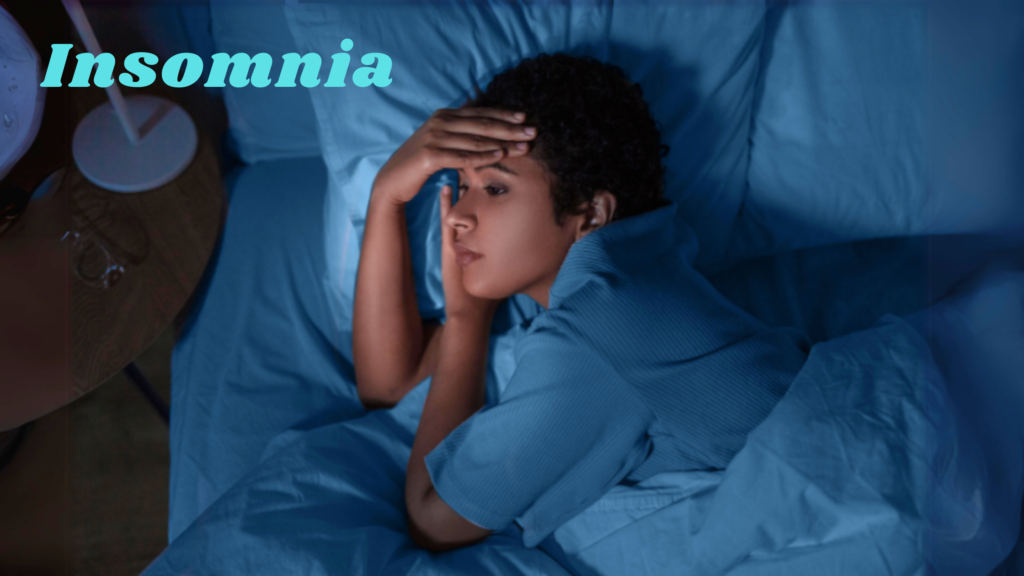🌙 Insomnia
Insomnia is a sleep disorder where a person has difficulty falling asleep, staying asleep, or waking up too early and being unable to return to sleep. It affects sleep quality and daytime functioning, leading to fatigue, irritability, poor concentration, and mood changes.
🧠 Types of Insomnia
| Type | Description |
|---|---|
| Acute Insomnia | Short-term (days to weeks); often triggered by stress, travel, illness |
| Chronic Insomnia | Occurs at least 3 nights a week for 3+ months |
| Primary Insomnia | Not directly linked to another health condition |
| Secondary Insomnia | Caused by another issue (e.g. depression, medication, chronic pain) |
⚠️ Common Causes
- Stress (work, relationships, financial)
- Anxiety or depression
- Poor sleep habits (e.g., irregular schedule, screen time at night)
- Caffeine, nicotine, alcohol use
- Medications (e.g., steroids, antidepressants, decongestants)
- Chronic pain or medical conditions (e.g., asthma, GERD, arthritis)
- Shift work or jet lag
😴 Symptoms
- Difficulty falling asleep
- Waking up frequently during the night
- Waking too early
- Feeling unrefreshed after sleep
- Daytime fatigue or sleepiness
- Irritability or mood changes
- Trouble concentrating or remembering things
🧪 Diagnosis
- Sleep diary (tracking sleep habits)
- Medical and psychological history
- Polysomnography (sleep study) if sleep apnea or other disorder is suspected
- Actigraphy (wearable sleep monitor)
💊 Treatment Options
🛌 Non-Drug Treatments (First-line for chronic insomnia)
- Cognitive Behavioral Therapy for Insomnia (CBT-I): Most effective long-term treatment
- Sleep hygiene education:
- Go to bed and wake up at the same time daily
- Avoid screens and caffeine before bed
- Keep bedroom cool, dark, and quiet
💊 Medications (short-term use)
- Prescription:
- Zolpidem (Ambien), Eszopiclone (Lunesta), Temazepam
- Over-the-counter:
- Diphenhydramine (Benadryl), melatonin (use cautiously)
- Note: Long-term use of sleeping pills is not recommended due to dependence and side effects
🛡️ Prevention Tips
- Stick to a consistent sleep schedule
- Limit naps to under 30 minutes
- Avoid large meals, caffeine, or alcohol before bed
- Wind down with relaxing activities (reading, warm bath)
- Use your bed only for sleep and sex
✅ Key Facts
- Insomnia is very common and often treatable
- CBT-I is more effective than medications in the long run
- Lifestyle and sleep habits play a major role
- Chronic insomnia may signal an underlying condition
